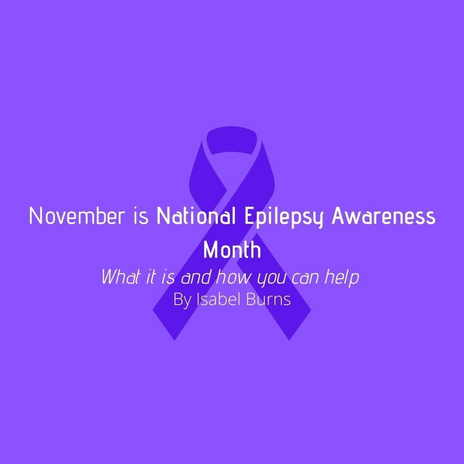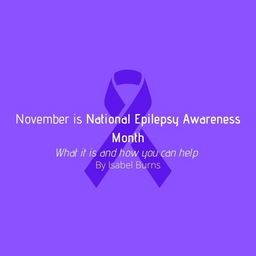November is National Epilepsy Awareness Month. For some, epilepsy is an everyday struggle. But what exactly is it? Epilepsy is defined by Mayo Clinic as a neurological disorder in which brain activity becomes abnormal, causing seizures or periods of unusual behavior, sensations, and sometimes loss of awareness. This neurological condition can affect both males and females of all races, ethnic backgrounds, and ages.
Epilepsy symptoms can vary depending on the area of the brain affected. Most seizure signs and symptoms may include temporary confusion, a staring spell, uncontrollable jerking movements, loss of consciousness, and psychic symptoms such as fear, anxiety, or deja vu. There are two categories of seizures: focal and generalized. The two types of focal seizures include focal seizures without a loss of consciousness and focal seizures with impaired awareness. Focal seizures without a loss of consciousness may alter emotions, involuntary jerking of a body part, and spontaneous sensory symptoms. Focal seizures with impaired awareness can cause a lack of awareness or repetitive movements.
Generalized seizures contain 6 subclasses: Absence, tonic, atonic, clonic, myoclonic, tonic-clonic. Absence seizures often occur in children and are characterized by a lack of awareness of subtle body movements. Tonic seizures cause stiffening of the muscles in the back, arms, and legs. Atonic seizures cause a sudden loss of muscle control. This can lead to the person collapsing or falling down. Clonic seizures are characterized by repeated jerking muscle movements in the neck, face, and arms. Myoclonic seizures are characterized by sudden brief muscle jerks in the arms and legs. Tonic-clonic seizures are what most people think of when they hear the word “seizure.” These types are the most dramatic type of seizure and can cause body shaking, loss of consciousness, and biting your tongue.
Unfortunately, the cause of epilepsy is unknown in almost half of patients that are diagnosed. For others, some causes can be genetic influences, head trauma, brain conditions, infectious diseases, prenatal injury, or developmental disorders. Certain factors such as young age, family history, head injuries, vascular diseases, or brain infections can increase a person’s risk of developing epilepsy.
So how can you help those with this condition? Being informed and educated on the topic is the best way to help others with epilepsy. If you encounter someone having a seizure, take these steps and precautions:
-
Stay with the person and time the seizure.
-
Carefully move the person away from anything that could harm them.
-
Turn the person onto their side and if possible place a pillow or blanket under their head to prevent injury.
-
Do not restrain the person.
-
Never leave a person having a seizure unattended. Stay with the person until the seizure has ended.
-
If the seizure lasts longer than 5 minutes, the person has repeated seizures, difficulty breathing, the seizure occurs in water, the person is pregnant, injured, or sick, the person isn’t returning to their normal state, or it is a first-time seizure, call 911 immediately.



